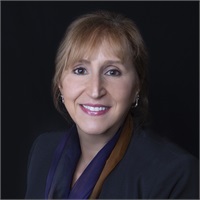 Retirement is a time when most people expect to enjoy the fruits of their labor, with financial security and a steady income from investments or savings. However, for some individuals, this period can present a unique financial challenge: being asset-rich but cash poor. So, what’s the meaning of this financial paradox? What are its implications for retirement? And how can you avoid falling into this predicament when transitioning into retirement?
Retirement is a time when most people expect to enjoy the fruits of their labor, with financial security and a steady income from investments or savings. However, for some individuals, this period can present a unique financial challenge: being asset-rich but cash poor. So, what’s the meaning of this financial paradox? What are its implications for retirement? And how can you avoid falling into this predicament when transitioning into retirement?
An individual is considered asset-rich when they possess substantial non-liquid assets, such as real estate, business equity, or personal property. However, being cash and income-poor means that despite having valuable assets, you lack readily available cash or a reliable source of income to cover your day-to-day expenses. This situation can lead to financial stress, as retirees struggle to maintain their lifestyle, meet their financial obligations, and cover unexpected expenses.
Cash flow is vital during retirement, as it provides a steady income stream to cover living expenses, healthcare costs, and other financial needs. When retirees are asset-rich but cash and income poor, they may be forced to sell their assets or take on debt to meet their expenses. This can jeopardize their financial security, diminish their quality of life, and even lead to a downward spiral of debt and asset depletion.
Several factors can contribute to someone becoming asset-rich but cash and income poor in retirement. Inadequate retirement planning can lead you to miscalculate the effects of inflation, taxes, and potential medical expenses which can leave retirees in a financially vulnerable position. Overinvestment in illiquid assets can concentrate too much wealth in non-liquid assets, such as real estate can limit access to cash when it’s needed. Insufficient diversification of investments can expose retirees to market volatility and reduce their income streams during economic downturns.
Watch out for these pitfalls and cover your bases so you can ensure sure you’re able to maintain your quality of life while preserving your wealth throughout your retirement. Allocate your wealth across various asset classes, such as stocks, bonds, and real estate, to minimize risk and provide multiple income streams. Maintain an emergency fund to ensure you have a cash reserve to cover unexpected expenses and avoid having to sell assets or take on debt.
Being asset-rich but cash poor is a challenging financial situation that can compromise your retirement security. By understanding the causes and taking proactive steps towards better retirement planning, you can avoid this predicament and ensure a financially stable and fulfilling retirement.
A financial professional can help answer your concerns about managing your assets, income, and wealth plans to make sure you can replace your paycheck and achieve a comfortable retirement. Contact us at (603) 261-3736 to get started with a financial professional today.
Source:

 Bob has a passion for making your money work hard for you. He takes profound joy in ironing out a plan for a long and comfortable retirement, no matter what your current income or level of wealth. With a work ethic second to none, he has a zeal for transforming uncertainty into stable ways for you to protect your future and your family. He knows that the quality of your life you enjoy today can remain as rewarding—or even better—after retirement.
Bob has a passion for making your money work hard for you. He takes profound joy in ironing out a plan for a long and comfortable retirement, no matter what your current income or level of wealth. With a work ethic second to none, he has a zeal for transforming uncertainty into stable ways for you to protect your future and your family. He knows that the quality of your life you enjoy today can remain as rewarding—or even better—after retirement. With a strong background in information technology, Carol is instrumental in building operational policies and strategies that keep the organization functioning smoothly. Carol’s organizational skills and her flexibility to jump from priority to priority along with her commitment to customer service makes her an essential part of the Grimard Financial team. When Carol is not working with the Grimard Financial Family, she is a very creative and accomplished photographer.
With a strong background in information technology, Carol is instrumental in building operational policies and strategies that keep the organization functioning smoothly. Carol’s organizational skills and her flexibility to jump from priority to priority along with her commitment to customer service makes her an essential part of the Grimard Financial team. When Carol is not working with the Grimard Financial Family, she is a very creative and accomplished photographer.